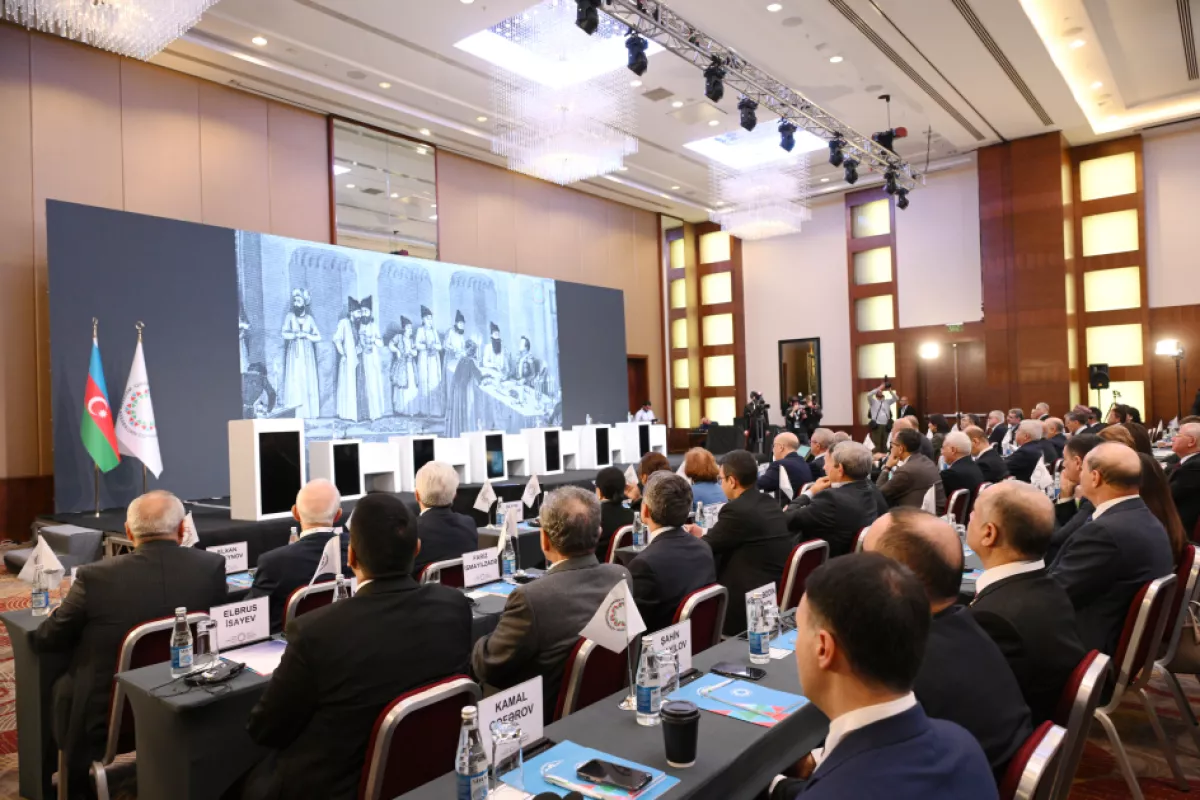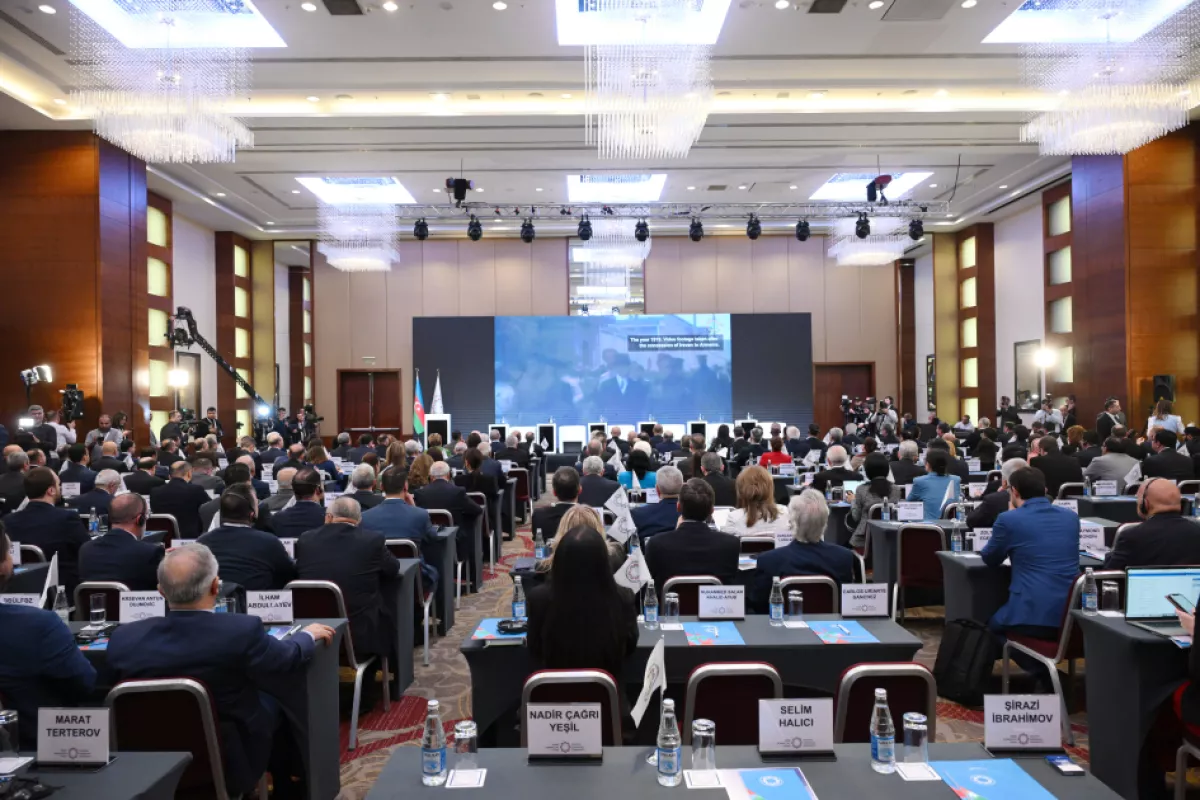Aliyev urges international support for Azerbaijanis’ return to ancestral lands Justice for displaced people
On December 5, the international conference titled "The Right to Return: Advancing Justice for Azerbaijanis Expelled from Armenia" began its proceedings in Baku. Azerbaijani President Ilham Aliyev addressed the conference participants.
In his address, the president, in addition to offering greetings and well-wishes, delivered key political messages directed at both Armenia and the international community. "More than 120 million people around the world have currently faced the problem of forced displacement, and an effective solution to this problem is impossible without the united efforts of the international community," the President stated. He went on to highlight the several waves of deportation of Azerbaijani citizens from Armenia, which transformed the country into a mono-ethnic state.
The head of state then noted: "Armenia is trying to deliberately portray the activities of the Western Azerbaijan Community as a threat to its territorial integrity. However, the goal of the Community is to facilitate a peaceful, safe and dignified return of our compatriots displaced from Western Azerbaijan to their ancestral lands. This is a purely human rights issue. The fact that Armenia labels the Community’s activities as a threat represents an attempt to distort the true essence of the issue and deny the right of return enshrined in international law."

This message is once again aimed at putting an end to the speculations about Azerbaijan's allegedly aggressive plans towards Armenia. Yerevan and its backers have created a distorted and flawed narrative regarding the return of Armenians to the Karabakh region of Azerbaijan, without any conditions and under international supervision, while completely ignoring the right of Azerbaijanis to return to Western Azerbaijan. Baku has repeatedly stated that Armenians can return to Azerbaijan under two conditions: obtaining Azerbaijani citizenship and ensuring the return of Azerbaijanis to Armenia.
The following statement by President Aliyev deserves particular attention: "The Western Azerbaijan Community has repeatedly called on the Armenian government to engage in dialogue, but the opposing side has always turned down these initiatives. Armenia has to embark on negotiations with the Community and take tangible steps to restore the fundamental rights of Western Azerbaijanis."
As we can see, the Azerbaijani leader not only highlights the existence of the problem but also suggests solutions to Armenia – Yerevan must engage in dialogue with the Western Azerbaijan Community, not to bury its head in the sand, but to address the issue in full compliance with humanitarian standards.
By outlining this principle, President Aliyev also called on Armenia to cooperate with international organizations in this context: "In addition, Armenia has to allow a UNESCO fact-finding mission to monitor the situation regarding the destruction and distortion of the historical and cultural heritage of the Azerbaijani people and be open to cooperation in this area."
However, this call will pose a challenge not only for Armenia but also for UNESCO itself, which is heavily influenced by French emissaries and has, under their influence, become an instrument of Turkophobia and Islamophobia. One only needs to recall how UNESCO, which remained silent for thirty years regarding the destruction of Azerbaijani historical and cultural monuments by Armenian occupiers, launched a hysterical campaign during the 44-day war about the alleged threat to Armenian monuments in Karabakh.
It is precisely to them that Aliyev reminds: "It is extremely important that the international community should support the peaceful initiatives of members of the Western Azerbaijan Community in accordance with international law to ensure their right of return to their native lands. Initiatives based on the successful implementation of the Concept of Return will make a great contribution to the peaceful, safe and dignified return of Western Azerbaijanis to their native lands."

However, the growing attention of the international community to the issue of Western Azerbaijanis is reflected in a recent incident at the United Nations. During the 114th session of the Committee on the Elimination of Racial Discrimination, Armenia’s periodic report was reviewed. The Armenia rapporteur, Yeung Kam John Yeung Sik Yuen, expressed concern over the absence of legislation in Armenia criminalizing racist organizations and participation in them, while also highlighting recent hate crimes. Meanwhile, Chung Chinsung, a committee member, expressed confusion over the numerous claims regarding Azerbaijan in Armenia's report, noting that there are no Azerbaijanis living in Armenia.
In this regard, the efforts of Azerbaijan’s relevant agencies addressing this issue at the international level, as well as the Western Azerbaijan Community, which is working effectively and swiftly, should be highly appreciated.
The issue of the return of Azerbaijanis to Western Azerbaijan is gradually becoming part of the global humanitarian agenda. Armenia's supporters, who for thirty years defended the aggressor and remained silent about the plight of hundreds of thousands of Azerbaijani refugees and internally displaced persons, are now reluctantly confronted with extensive reports on the right of Azerbaijanis to return to their ancestral lands. Undoubtedly, Armenia's patrons will attempt to obstruct this process, but it will not make their position any easier.








